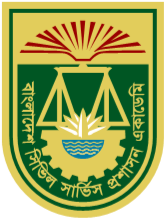Financial Autonomy of Union Parishad
A Case of Sadar Upazila under Meherpur District
Keywords:
Union Parishad, Financial Autonomy, Decentralization, Accountability, Central-local RelationshipAbstract
Local Government Institutions in Bangladesh are a crucial domain for democratic practice, political
empowerment, and public service provision to the citizens. The Constitution empowers Local Government
Institutions, yet they fail to achieve their autonomy and are heavily dependent on the central government's
directions. This study aimed to assess the impact of financial autonomy on strengthening the financial resources
management capacity of Union Parishad (UP) through the convergence of central-local policy and strategy. The
exploratory sequential design was used to investigate the objectives under which 20 IDIs, 10 KIIs, and 134
surveys were conducted from different unions of Meherpur Sadar Upazila. The study result showed that
insufficient financial supply, limited local revenue base, and unwillingness to collect tax for maintaining
popularity has created a burden in performing the responsibilities for UP. This situation gotten worse when the
Local Government Act 2009 created more dependency on the central government. Yet newly formed
participatory avenues like Open Budgeting and Wardshava have created some form of transparency in the UP
by expanding citizens’ involvement and empowerment in financial management. In these circumstances,
liberalisation of the central government’s control and massive involvement of citizens in UP activities can
restore the true nature of local self-government and ensure financial autonomy in UP

